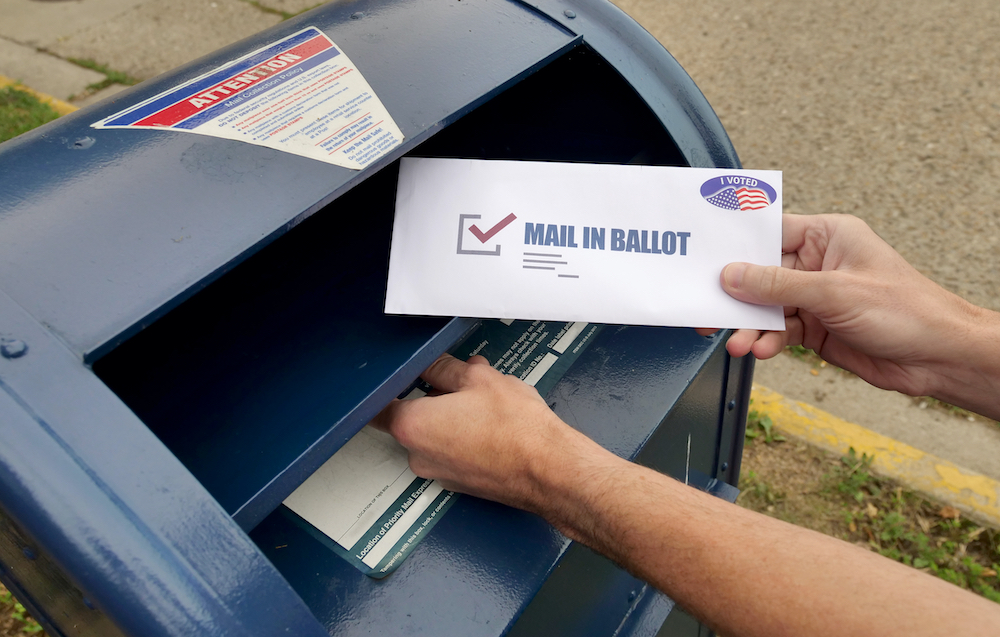Indiana Voting By Mail Case Provides SCOTUS With Opportunity to Affirm Scope of Voting Rights Amendments

This week, the Supreme Court will consider whether to hear a case called Tully v. Okeson. In this case out of Indiana, challengers allege that a vote-by-mail law providing certain voting opportunities to older voters without providing those same opportunities to younger voters violates the Twenty-Sixth Amendment. The lower court decision, holding that the law is constitutional, is wrong. If allowed to stand, it could have major adverse implications for voting rights more broadly. The Supreme Court should hear this case.
In Tully, nine individual Indiana voters under the age of 65, along with the nonprofit organization Indiana Votes by Mail, Inc., are challenging an Indiana law that allows voters 65 and older to vote by mail without excuse, but does not allow voters under 65 that same opportunity. The plaintiffs argue that the Twenty-Sixth Amendment to the U.S. Constitution, which guarantees that the right to vote of all citizens eighteen and older “shall not be denied or abridged” by any state “on account of age,” expressly prohibits such laws.
The plaintiffs are right because, as we explain in our brief, the text and history of the Twenty-Sixth Amendment prohibit laws that deny equal voting opportunities to voters on account of age. Beyond simply extending voting rights to previously disenfranchised young adults, the broad language of the Twenty-Sixth amendment expressly forbids age discrimination in voting in the same manner the Fifteenth and Nineteenth Amendments outlaw discrimination in voting on the basis of race and sex. Indeed, the framers of the Twenty-Sixth Amendment intentionally modeled its language on the robust guarantees of those amendments.
Specifically, the Twenty-Sixth Amendment, like the Fifteenth and Nineteenth Amendments, prohibits not just denial of the right to vote, but all forms of abridgement of that right as well. By prohibiting any abridgement of the right to vote, these amendments ensure that once eligible to vote, no citizen may have fewer voting opportunities than another because of their race, sex, or age. This understanding of the word “abridge” in the Constitution’s text and history leads to a simple conclusion: because the Indiana vote-by-mail law denies younger voters opportunities made available to older voters, it should be held unconstitutional.
The Seventh Circuit held that the Indiana voting law at issue is constitutional because, in part, it concluded that voting by mail is simply a privilege, not a right. This reasoning ignores that the right to vote is protected by the Constitution regardless of how a voter chooses to exercise it. Voting is voting, whether done in person or by mail. But if the Seventh Circuit’s ruling is allowed to stand, their reasoning could lead to deeply troubling outcomes. If voting by mail is treated as a separate privilege, rather than an equally valid way of exercising the constitutionally protected right to vote, then states could regulate access to the ballot in any number of shocking, discriminatory ways. By the Seventh Circuit’s reasoning, Florida could decide that only white voters could vote by mail because the Fifteenth Amendment’s guarantee of equal voting opportunities regardless of race would not apply to the “privilege” of voting by mail. Or California could decide that only men can vote by mail because the Nineteenth Amendment’s guarantee of equal voting opportunities regardless of gender would not apply to the “privilege” of voting by mail.
The Seventh Circuit also urged younger voters to look to the Fourteenth Amendment, rather than the Twenty-Sixth, to seek protection from discriminatory voting laws. But this too was wrong. Indeed, that conclusion ignored a critical aspect of the Twenty-Sixth Amendment’s history: it was adopted in direct response to a Supreme Court decision that interpreted the Fourteenth Amendment to give states the freedom to treat voters differently based on age.
In short, if the Seventh Circuit’s reasoning were to be adopted elsewhere, it would seriously curtail the scope of not only the Twenty-Sixth Amendment, but all of the voting rights amendments. Such an outcome would be disastrous for voting rights nationwide at a time when those rights are already under assault. Tully v. Okeson provides the Court with an important opportunity to ensure that the Twenty-Sixth Amendment is applied as robustly as its text and history require, and the Court should hear the case.
